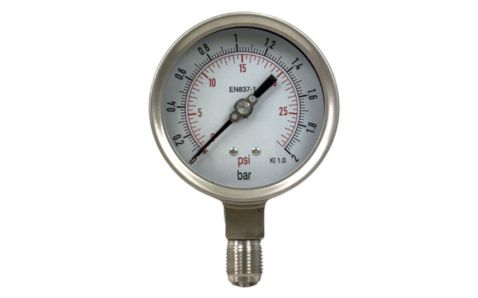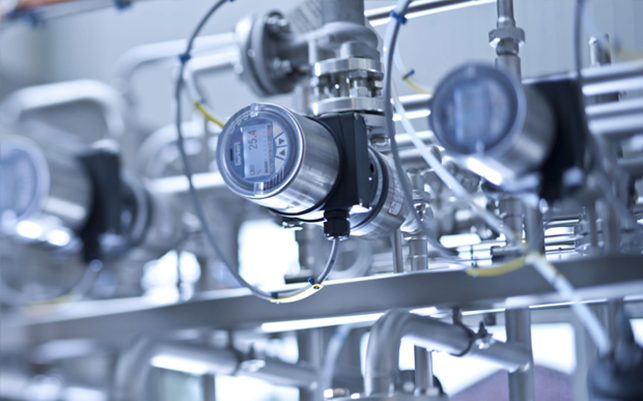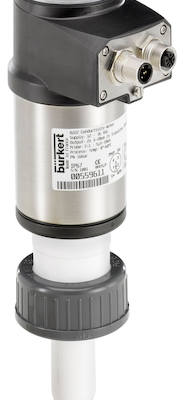
Pressure Gauges in the Process Industry | How to Use and Calibrate
How to Use a Pressure Gauge in the Process Industry
A pressure gauge is a vital instrument for monitoring the pressure of gases or liquids in industrial systems. At BM Engineering Supplies, we provide pressure gauges suitable for a wide range of process industry applications — from chemical, pharmaceutical, and food & beverage processing, to distilleries, dairy, bioenergy, and data centres.
Understanding how to use and calibrate a pressure gauge correctly ensures it continues to deliver accurate, reliable readings — preventing system failures, product loss, or safety issues.
How Does a Pressure Gauge Work?
The working principle of a pressure gauge is simple yet highly effective. Most pressure gauges operate using a Bourdon tube mechanism:
- The gauge contains a curved inner tube connected to a gear and shaft assembly.
- When internal pressure increases, the tube straightens slightly.
- This motion moves the gear and shaft system, which in turn shifts the pointer on the dial.
- The amount of movement is proportional to the internal pressure, providing an accurate reading.
Without a functioning pressure gauge, process systems can become unpredictable or unsafe, leading to equipment strain or catastrophic failure. That’s why accuracy, durability, and ease of use are essential qualities for any industrial gauge.
How to Use a Pressure Gauge
Pressure gauges are key to maintaining system efficiency and safety. They help operators identify changes in pressure that could signal process inefficiencies, leaks, or blockages.
In many industrial systems, two gauges are installed to measure differential pressure by comparing the pressure at two points. This measurement helps identify:
- Energy losses in pumps, compressors, and valves
- Filter blockages affecting the flow rate
- Drops in performance across heat exchangers or separators
Common Scenarios Where Pressure Gauges Are Used
- Distilleries: To monitor pressure during distillation and ensure consistent spirit quality.
- Dairy & Food Processing: To control pasteurisation pressure and maintain hygiene compliance.
- Pharmaceutical Manufacturing: To verify pressure stability in clean-in-place (CIP) systems and reactors.
- Chemical Plants: For monitoring corrosive or volatile media under high pressure.
- Data Centres: To regulate coolant flow within liquid cooling systems.
- Renewable Energy Plants: For pressure monitoring in bioenergy feedstock handling systems.
Explore how we support these sectors via our industry pages.
How Are Pressure Gauges Calibrated?
Calibration ensures your pressure gauge delivers accurate and repeatable measurements. There is no universal calibration method — it depends on your application, process medium, and accuracy requirements.
Common calibration tools include:
- Dead weight testers (for high-accuracy calibration)
- Pneumatic or hydraulic calibrators (for on-site checks)
Always confirm that your calibration equipment is itself traceable to a recognised standard before use.
How to Adjust a Pressure Gauge
Follow these steps to calibrate and adjust your pressure gauge correctly:
- Ensure your chosen calibration device has been verified against a manufacturer’s or national reference standard.
- Connect the gauge securely, including a block valve (to isolate the system) and a bleed valve (to release pressure safely).
- Set the gauge pointer to zero.
- Apply maximum rated pressure and adjust the pointer to match the calibrator reading.
- Isolate and depressurise the system completely.
- Check for zero drift and fine-tune if necessary.
- Repeat until the readings are consistent and accurate.
Keep a record of all calibration results — this data forms your calibration log and can support certification compliance for quality management systems such as ISO 9001.
Pressure Gauges from BM Engineering Supplies
At BM Engineering Supplies, we offer pressure gauges in sizes from 50mm to 300mm, suitable for gaseous and liquid media that are non-viscous, non-crystallising, and non-corrosive to stainless steel.
Whether you’re monitoring process lines in a distillery, a pharma plant, or a food production facility, our gauges ensure reliable pressure readings for safe, efficient operations.
Order Pressure Gauges from BM Engineering Today
A pressure gauge may be a small component, but it plays a big role in maintaining process performance and preventing costly downtime.
🛒 Browse our full range of pressure gauges
📞 Contact our engineering sales team for expert advice.



